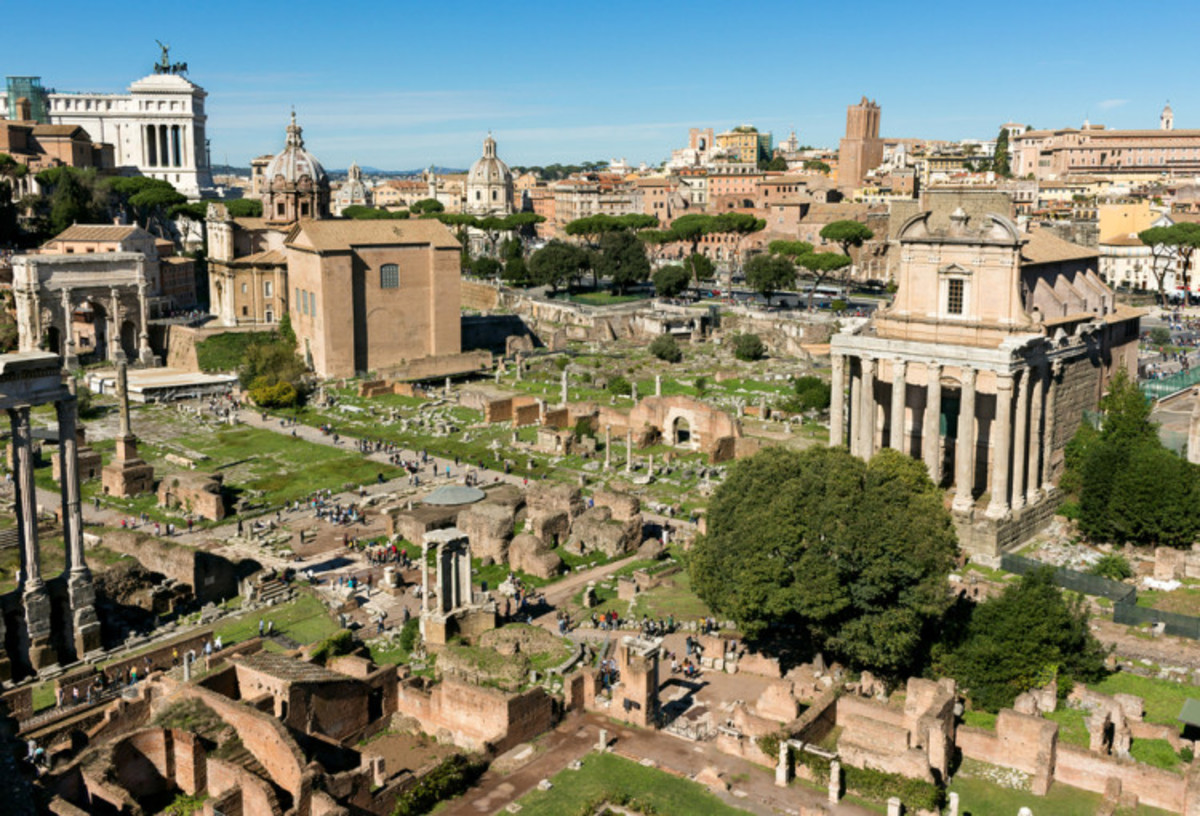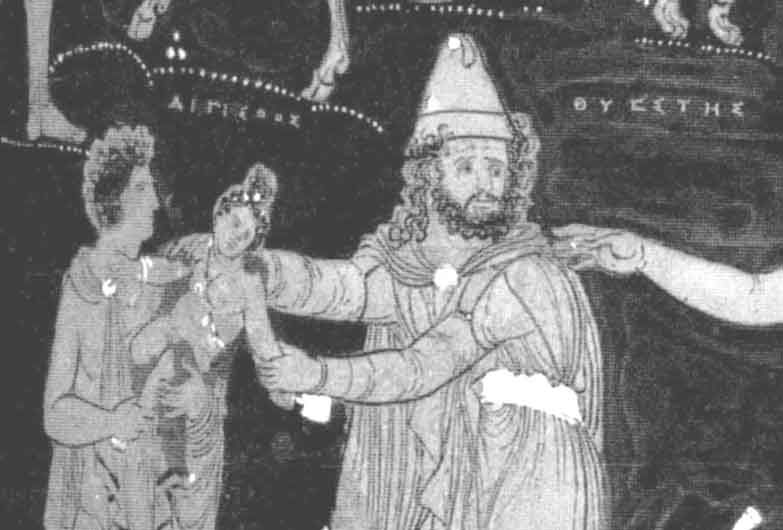Classics 351
April 12, 2022
_-_Museo_Gregoriano_Etruscco_(XX).JPG)
Parentini, The Banquet of Thyestes, ca. 1560
Performance, 4/14: Phaedra 1159-1198 (Phaedra's suicide)?
Exam #2 Key
Senecan tragedy: formal devices of Greek tragedy include chorus, stichomythia (conversation in alternate lines, e.g. debate between Atreus & Servant, Act 2, or shared lines, e.g. Atreus & Thyestes, 1100-1103); messenger's speech (Act 4, ekphrasis of the horrific grove: “an ancient grove buried in a deep valley ....", 651)
- Senecan/Roman stylistic admixtures: sententia (feature of Roman rhetoric = pithy, paradoxical generalizations/truisms, e.g., "The ability to do without a kingdom is a kingdom", 470; "[Atreus] enjoys order in brutality", 715-716); epic similes (after Vergil's Aeneid), e.g. hungry tigress (707ff.), long-maned lion (732ff.)
Thyestes 205-207 (Atreus on kingship)
The best thing about being king
is making folks accept whatever you do,
and even praise it.
Thyestes 247-248
Only weak kings kill. Under my rule, people beg
for the favour of death.

- chorus: who are they, what's their point of view? deliver some of play's most powerful poetry, e.g. Chorus #3 (546ff.) = celebratory song about brothers' reconciliation (simile of calm seas after a storm, 577ff.); Stoic thoughts on fickleness of fortune & impermanence of power/empire (Seneca's strong historical sense):
Thyestes 596ff.
No situation lasts. Pleasure and pain
give way in turn; but pleasure is more brief.
A fleeting hour exchanges high and low ...
... You to whom the lord of sea and land
has given the great power of life and death,
set aside your proud and puffed-up face.
Whatever your subordinates fear from you,
your master may in turn inflict upon you:
for
every kingdom lies beneath another.
Chorus #4 (789ff.): after messenger's speech re Atreus's sacrifice & dinner preparation; cosmic confusion, apocalyptic despair
Thyestes 882-884 (close of chorus)
Enough
complaints, enough of fear;
one would have to be greedy for life not to want
to die when the world is dying.
Thyestes, Act 4 (623-884): the horrific messenger’s speech to the chorus; sacrifice of Tantalus Jr., Plisthenes, unnamed younger brother
**GROUPS**

Rubens, Saturn
Devouring his Son, 1636
Thyestes, Act 5 (885-1112): Atreus and Thyestes face off at banquet of horror
**Performance: Elsa, Thyestes 885-919**
Thyestes 885-888 (Atreus's exaltation)
My steps are level with the stars, I rise above the world
touching heaven’s axis with my exalted head.
Now royal power and my father’s throne are mine.
No need of gods … [cf. "Yes! I am God! Highest of all powers, / and King of Kings!", 911-912)
- Atreus's imagined cosmic spectacle: deceptive actor > director/playwright of banquet?
Thyestes 893-895 (cf. Pelops's banquet)
If only I could prevent the gods from leaving,
drag them down and force them all to watch
this vengeance feast!
- Thyestes's shallow Stoicism exposed in celebratory gluttony, drunkenness
Thyestes 922-924
Away with grief, away with fear,
away with that companion of my exile:
bitter poverty, and shame which weighs
heavily upon the poor.
- palace opened up (901; ekkyklêma?) to reveal banquet inside
Thyestes 976-983 (ironic doublespeak)
Your boys are here, believe me—held by their father.
They are here and always will be; no part of your children
can ever be taken from you. I will give you the faces
you long to see, I will find you full with them all.
Do not worry, you will be satisfied. They are mingling
with my own boys, and enjoying a holy meal.
But they will be summoned. Have a drink.
This is a family cup.
- Atreus’s lack of satisfaction
Thyestes 1056-1068
My impatience cheated my rage. I used my sword
to stab them. I rushed at the altars. I satisfied
all the holy fires with slaughter. Chopping up
their lifeless bodies, I pared their limbs
to little scraps, which I plunged in the boiling pots,
and had them simmered on a gentle heat.
I cut the arms and legs and muscles off
while they were still alive, and skewered them
on nice slim spits. I saw them groan, and brought
fresh fires with my own hands.—But all of this
could have been better done by their own father.
My vengeance is a failure. The wicked father
munched his sons, but did not know it; nor did they.


L: Dareios Painter, Thyestes & Baby Aegisthus, ca. 340 BCE; R: Mei, Orestes Slaying Clytemnestra & Aegisthus, 1654
- Atreus's final rationalization & affirmation of cycle of violence/revenge
Thyestes 1104-1106
I know your complaint: you mind me doing it first!
You are not hurt because you gulped that ghastly meal,
but because you did not serve it.



